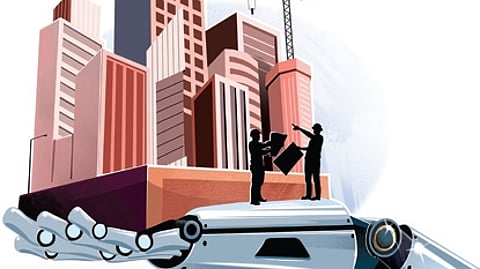

BENGALURU: Confederation of Real Estate Developers’ Association (CREDAI) directed the state government to prioritise infrastructure works in Bengaluru and focus on sustainability and inclusivity. The association submitted a list of recommendations to the government for implementation.
CREDAI Bengaluru President, Amar Mysore, acknowledged recent positive steps such as the introduction of e-Khata, Premium FAR, clarity on car parking areas under property tax, and the increase in allowable height for stilt parking to 4.5 metres. However, he emphasised that several other long-pending issues still require urgent government attention.
A key concern highlighted was the delay in the revalidation of old Transferable Development Rights (TDR) certificates, which significantly hampers project timelines and costs. Resolving this, Mysore said, would also expedite the issuance of Occupancy Certificates by concerned government agencies.
“We request the government to revive and implement the Transit Oriented Development (TOD) policy that was formulated in May 19 by the Directorate of Urban Land Transport (DULT) and Bangalore Metro Rail Corporation Limited (BMRCL) in May 2019. The TOD policy was designed to boost transit-oriented development. However its implementation continues to remain a challenge,” he said.
Among other requests, CREDAI urged the government to increase Floor Area Rator (FAR) allowances within 500 meters of metro stations and revise parking norms to promote public transport use, ease congestion and enhance overall productivity. Mysore also called for a uniform, legally defined classification of water bodies, including lakes, drains and streams to prevent arbitrary enforcement and improve regulatory compliance. “We request clarity in the classification of water bodies and revision of buffer zones to optimize land usage. Modernising revenue maps in line with Comprehensive Development Plans through GIS and drone-based mapping would further streamline approval and enforcement processes, avoiding reliance on outdated data,” he added.